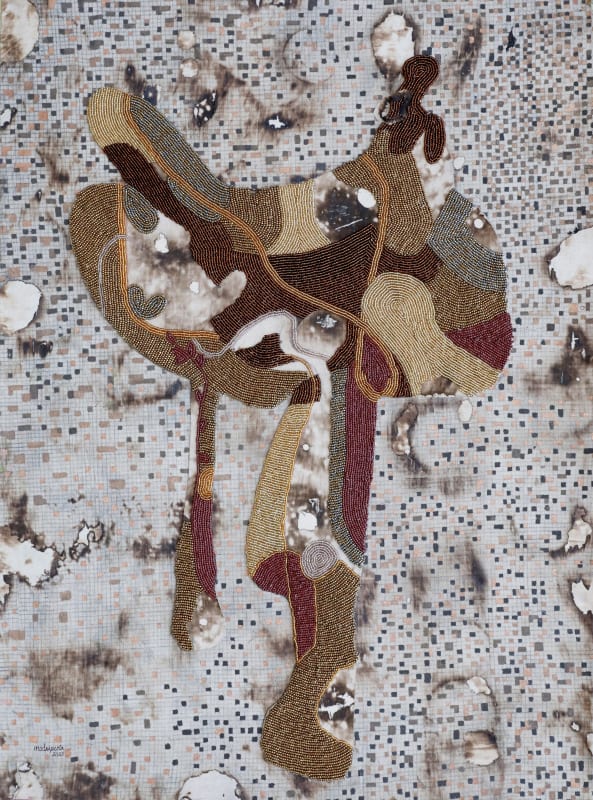Modupeola Fadugba - Of Movement, Materials and Methods: London
Gallery 1957 is proud to present Of Movement, Materials and Methods, a solo exhibition by Modupeola Fadugba opening in London on 22nd May, running until 29th June.
As an official part of the London Gallery Weekend 2025 programme, the exhibition is inspired by the rich pageantry of the Ojude Oba festival.
Held annually in Ijebu-Ode, Nigeria, the festival is a vibrant celebration of Yoruba heritage, honouring the Awujale, the paramount ruler of the Ijebu people. Known for its elaborate equestrian processions, resplendent attire, and deeply rooted communal traditions, Ojude Oba stands as a powerful symbol of identity, unity, and cultural continuity. For Fadugba, the festival becomes both subject and starting point – a site of gesture, history, and living tradition. Her latest body of work reflects a shift in her practice, from water to land, from solitary swimmers to collective choreography, offering a personal yet expansive reflection on heritage and transformation.
Drawing inspiration from the grandeur of Ojude Oba, Fadugba translates its essence onto canvas through her signature mixed media approach, incorporating gold leaf, layered textures, and a palette as vibrant and rich as the festival itself. Intertwining traditional Nigerian motifs with the compositional influence of Islamic miniature painting, she layers shimmering hues of coral, magenta, and bronze to evoke the festival’s electrifying atmosphere. Through visible pencil strokes, deliberate shading, and unfinished elements, she preserves the raw creative process – echoing not only the evolving nature of Ojude Oba but also her ongoing inquiry into cultural memory and lived experience.
The series introduces Fadugba’s expanded beading practice, a continuation of her long-standing interest in materiality, memory, and community. More than embellishment, these works speak to heritage, to the tactile wisdom passed between generations, and to the role of artisanal knowledge in sustaining local economies. By collaborating with community-based artisans, Fadugba creates work that is both an aesthetic expression and a gesture toward economic empowerment – transforming beading into a method of engagement.
At the heart of this series lies a journey of return and reorientation. Though her ancestral ties are to Osun, Fadugba finds resonance in the spirit of Ojude Oba – its fusion of past and present, its collective celebration of identity, and its embodiment of movement as both metaphor and method. Through intricate detailing and layered surfaces, her works capture the rhythm of the drumming, the choreography of the riders, and the brilliance of the attire, inviting viewers into a space where cultural inheritance is not static but a flowing stream of story, ceremony, and renewal.
As Modupeola states: “What does it mean to archive the present? To document not just artefacts but voices, gestures, festivals, failures, and laughter? How do we, as artists, avoid merely appropriating culture and instead become part of its evolutionary arc—its renaissance? Museology, I’ve come to believe, isn’t confined to vitrines and climate-controlled rooms. It happens in the streets of Ijebu-Ode, in family compounds, in the cadence of oral history, and in the handed-down knowledge of women who string beads with ancestral precision. The artist, too, can be a kind of curator—of feeling, of folklore, of form.”
Of Movement, Materials and Methods honours the festival’s profound significance while offering a contemplative gesture toward the evolving role of tradition, community, and cultural memory in a world in motion.


